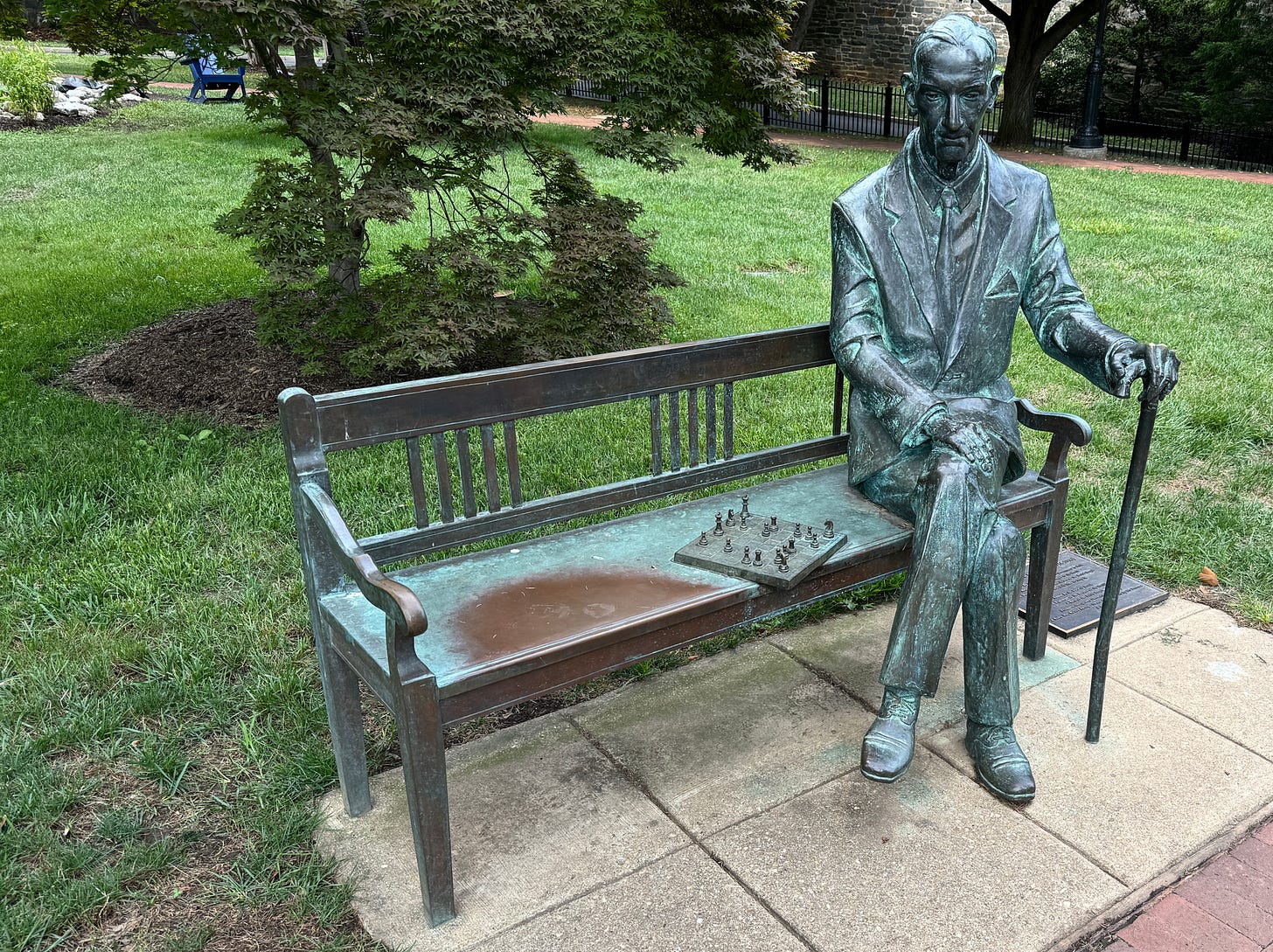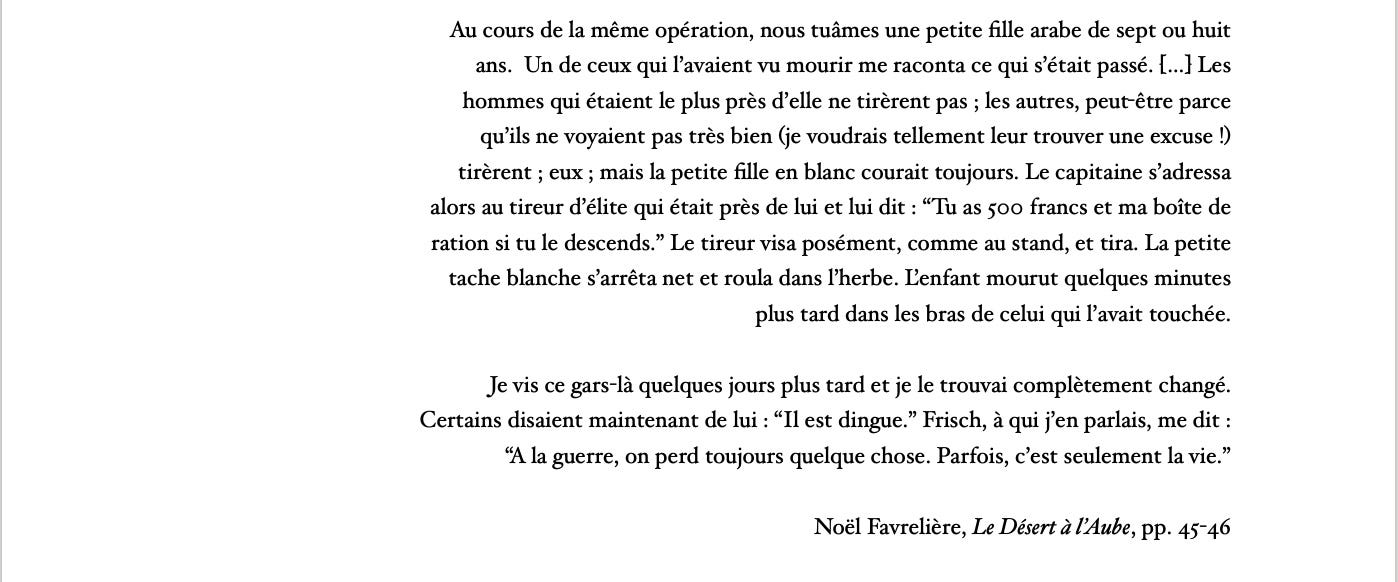What Do We Talk About When We Talk About Algeria?
Notes on a New Essay Series and an Overdue Return

Dear readers,
You may have noticed my year-long absence here. (Or, perhaps, you haven’t? If you, too, find yourself deleting more emails than reading them these days, I can relate.)
There are half a dozen excuses I could give you as to why I haven’t published lately. In the summer of 2024, I discovered a mold problem in the house I was living in. I spent the fall extracting myself from an ill-advised, short-lived dalliance with psychoanalysis and the winter attending to various family dramas that in any other context would have made for great fodder.
The truth behind my silence, though, is more straightforward: for the past 18+ months, I’ve struggled to keep my mind and heart focused on anything other than what the United States government is enabling in Gaza.
And yet I’ve struggled to write about Gaza, too.
Until recently, the best I’ve seemed able to do, in response to a live-streamed genocide, has been to borrow words. On social media — mostly on Instagram Stories, often in “private” — I’ve posted and reposted headlines, reels, infographics, and talking points — first timidly, then furiously, then rotely, lazily, perfunctorily.
This is embarrassing for a graduate of Georgetown University to admit, but until I actually visited Israel in 2016, I hardly understood anything about the Middle East. I am your stereotypical highlighted-blonde, brown-eyed American girl who came of age in the suburbs of Washington DC in the ‘90s. I attended my friends’ bar and bat mitzvahs in an era when Tina Fey was still mocking Palestinians on SNL but hopes for a two-state solution were at an all-time high. I was raised in a culture of default Zionism and took for gospel what I’d been told — that Israel was a land without a people for a people without a land, and that Israelis had taken a barren landscape and made it bloom. I lived vicariously through friends’ birthright trips. In college, you could find me regularly at Students for Israel events; I believed in the importance of the U.S.’ unconditional support for The Only Democracy In the Middle East as steadfastly as I believed, like any self-respecting Democrat, that George W. Bush was an idiot and French women don’t get fat.
I have deep empathy for my friends who are actively reckoning with their relationship to Israel, either in the silence of their hearts or aloud. I bristle at and reject easy stereotypes that typecast all Israelis as settlers from Brooklyn or reduce Zionism to its worst manifestations.
And: I’ve long reached and bypassed the point Macklemore so eloquently describes, where “the internal pain from being silent outweighs the risk of speaking up in moments of injustice.”
All that to say: I’ll be making my return to Substack over the next few weeks with a five-part essay. When I began writing it, I thought I was working toward an unrelated, standalone book review of a stunning French-language ‘essai’ — Nancy-Kabylie, by the acclaimed French*Algerian1 writer, journalist and filmmaker Dorothée-Myriam Kellou. Instead, the essay evolved over the course of a year into something larger, as I continued to wrestle with the questions she poses therein. It pulls on threads from my personal life as I attempt a post-mortem of my silence on Israel-Palestine, but, more importantly, it traces parallels I’ve continued to uncover through over a year of reading among the stacks of my alma mater’s library, between what we’re witnessing in the Middle East today and “les évènements d’Algérie”: Algeria’s brutal seven-and-a-half-year war for independence from French colonial rule (1954-1962), fought in the long shadow of WWII and not officially recognized by France as a war until 1999.
Part I of the essay drops one week from today on Tuesday, May 13.
Part II will be published on Thursday, May 15.
Part III will drop Tuesday, May 20.
Part IV will land in your inboxes on Thursday, May 22.
And we’ll conclude with Part V after Memorial Day on Tuesday, May 27.
Whether you expected to finally read the above from me at some point, or whether our relationship has fractured from the political divides that stand between us, I hope you’ll remember the trust you placed in me when you first subscribed to this newsletter and consider staying with me throughout.
With love,
always,
A
“Tiret, tiret, tiret. J’aime l’équilibre qu’apporte ce trait d’union. Il est confortable, mais sépare. Et si je le remplaçais par un astérisque ? Ce symbole typographique ressemble à une étoile. Il dénote aussi la multiplication. Je suis française*algérienne. Nous sommes des multiples, étoilés. Cet astérisque devient le point manifeste de mon utopie politique en France. Peut-être naïvement.”
Kellou, Dorothée-Myriam. Nancy-Kabylie (Essai) (French Edition) (p. 49). Grasset.
“Dash, dash, dash. I like the balance this hyphen brings. It’s comfortable, but it separates. And what if I replaced it with an asterisk? That typographic symbol resembles a star. It also denotes multiplication. I am French*Algerian. We are multiples, starred. This asterisk becomes the focal point of my political utopia in France. Perhaps naïvely.”






I can’t wait!!!
Congrats on this milestone!